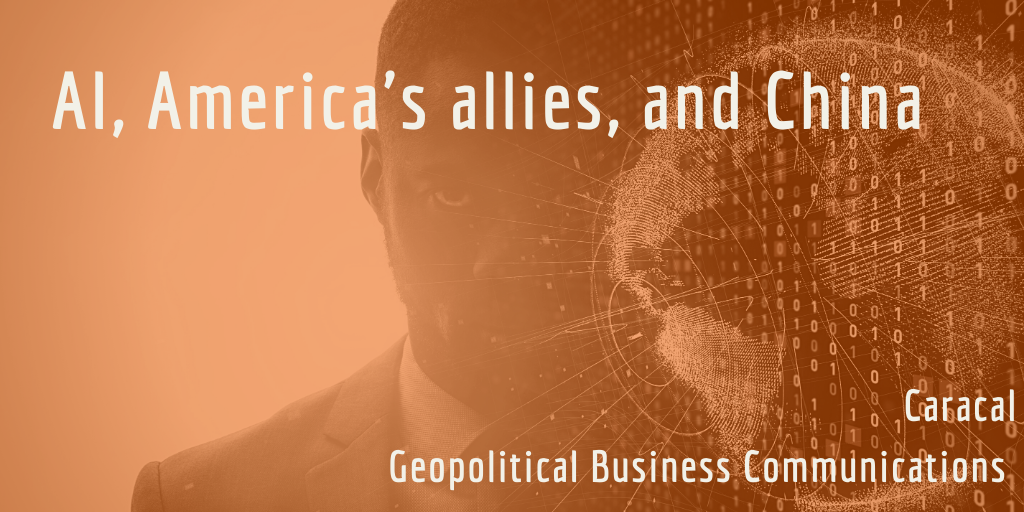In a 2016 meeting at West Point, computer geeks and database nerds gathered with America's military elite to discuss artificial intelligence (AI).
Pentagon officials heard AI represents "the biggest change to war since the internal combustion engine — and it will touch everything."
The computer geeks and database nerds described this AI inflection point as the "third offset."
Between national security pros, an offset is a competitive strategy in which a nation seeks to maintain an advantage over potential adversaries over long periods while preserving peace where possible.
An offset should be such a tremendous technological advantage that it defeats potential adversaries before a battle starts.
The first two offsets were nuclear weapons and precision-guided munitions capable of delivering them.
AI would be the third.
Flashforward to 2023, and just weeks from the G7 summit in Hiroshima, all three offsets are uniquely converging in a town that experienced a nuclear weapon firsthand, in a region driving the technology to make precision-guided munitions possible, and on a planet where we are just at the start of the AI revolution.
What is America to do?
Namely, what is America to do regarding AI and its allies?
President Joe Biden intends to sign an executive order (EO) in the coming weeks to limit the ability of US firms to bankroll critical technologies in China, including semiconductors and AI.
This EO follows a watershed policy introduced in October, in which America reversed a quarter of a century of free trade with China to restrict the export of the chips required to train and run advanced AI models. Last fall, the United States government enacted new export control regulations targeting China's AI and semiconductor industries. The controls began a new era in US-China relations and, with it, international politics.
Gregory Allen, an AI expert at the Center for Strategic and International Studies, calls these moves an effort to "blunt China's military adoption of AI technology" full stop.
What will American allies do?
Will they follow American policy?
We have entered a genuine "US vs. Them" period, which will last a generation at least.
At the G7, member nations like Japan, Italy, Canada, France, the United Kingdom, Germany, and the European Union, plus invited countries like Australia, Brazil, India, Indonesia, and South Korea, will all be making decisions between going with America or going with China.
These decisions will impact commerce, culture, politics, and defense of their respective nations for a generation.
Is "decoupling" from China on the table?
No.
Rather than "decoupling," President of the European Commission Ursula von der Leyen calls for "de-risking," reducing risks arising from dependencies.
The use of "de-risking" is a proficient diplomatic maneuver that allows Europe to keep an open engagement with China with cultural, scientific, commercial, and political exchanges.
Equally, "de-risking" allows Europe to blunt engagement with China in sensitive areas like quantum computing, AI, and biotechnology while keeping the US government in mind.
America is listening to its allies.
Team Biden has embraced the European "de-risking" strategy.
As Bloomberg reports, the Biden administration hasn't used "containment" to describe its China policies. Still, it's difficult not to see at least some parallels to the US campaign to isolate the Soviet Union last century.
The latest reassurances that Team Biden is not seeking to "decouple" from China came in speeches by United States Secretary of the Treasury Janet Yellen and National Security Adviser Jake Sullivan.
In the Johns Hopkins University School of Advanced International Studies remarks, Yellen said that "a full separation of our economies would be disastrous for both countries" and "destabilizing for the rest of the world."
Days following the Yellen speech, Sullivan at the Brookings Institution went further and even appropriated the term "de-risking."
"We are for de-risking and diversifying, not decoupling," he said, laying out what he proclaimed a new "Washington consensus" influenced by America’s allies.
US officials stressed that the speeches by top Team Biden staffers do not signal any change in American China policy.
American policy remains focused on limiting China's access to critical technologies to develop and field advanced military systems, including weapons of mass destruction, hypersonic missiles, autonomous systems, and mass surveillance.
The goal of "de-risking," as Sullivan has described it, is to create a "small yard, with a high fence." That is where limiting cultural, scientific, commercial, and political exchanges is necessary. It will be small in context to the totality of the US-China relationship but protected with high friction and flat-out bans.
As Bloomberg reports, the issue for the US is that allies in Asia and Europe, while concerned about China, don't consider the US an innocent participant either. They quietly point to hypocrisy in Washington: The US is engaging in an economic nationalism that, despite the language, risks veering toward a breakup that none of them genuinely want.
As we head into the 2024 US presidential election, my geopolitical mantras of "good politics rarely makes good economics" and "China doesn't have a vote in American elections" will be front and center. Any appearance of softening or suggesting more engagement with China will be a political liability for Team Biden in a national campaign where Republicans want to portray Biden as soft on China, and the frequent use of "Chinese Communist Party" by the GOP makes for an intense environment.
In an intense environment where AI is just starting, coupled with America's allies needing to engage China, and where China can not be seen just as a potential adversary.
Buckle up.
Just like driving an internal combustion engine comes with speeds and bumps, the "third offset" will challenge all of America's institutions and past diplomatic strategy.
If you need help better understanding the "third offset" and geopolitics, Caracal is here to help.
Enjoy the ride + plan accordingly.
-Marc



